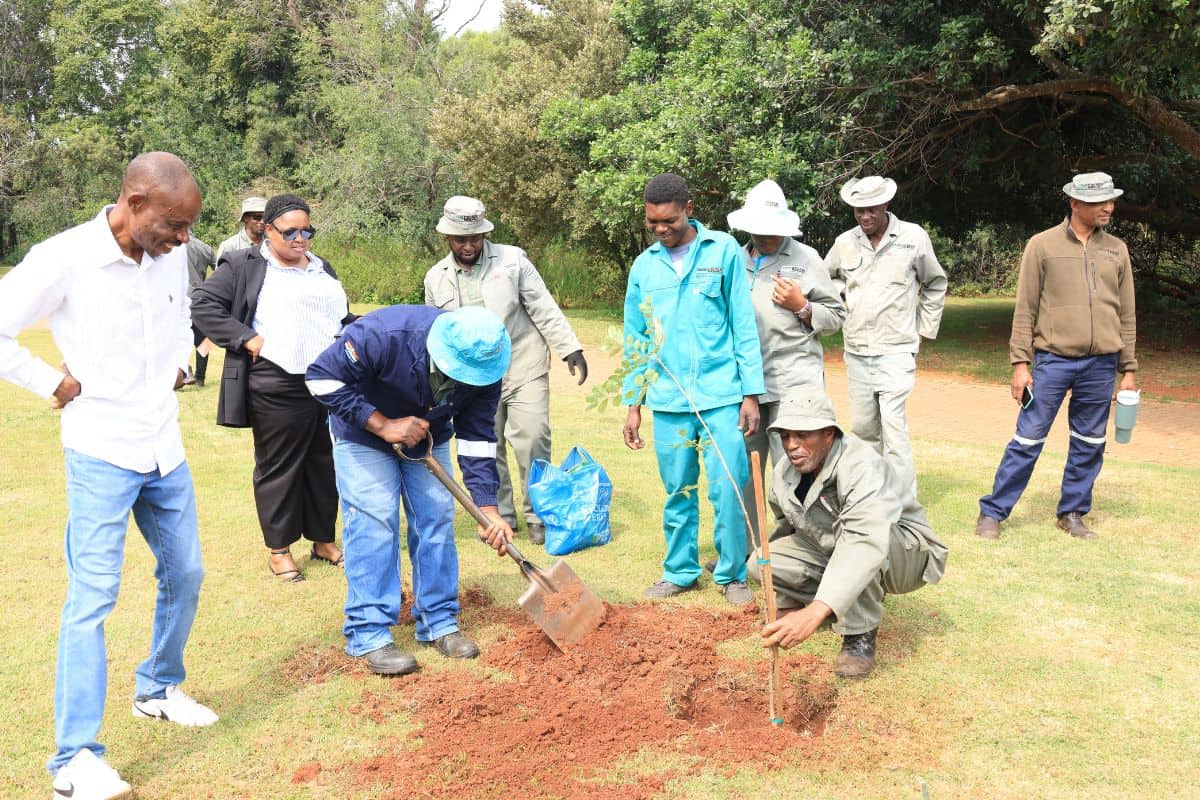Last year, the inaugural Indigenous Tree Day saw thousands of participants gather at 26 sites across 12 African countries.

Employees at the Pretoria National Botanical Graden participating on Tree Day. Picture: Supplied
On Tuesday, South Africa joined the rest of the continent to celebrate Indigenous Tree Day (ITD), a growing African initiative dedicated to the conservation and sustainable use of indigenous trees.
“The idea is that the trees planted in each country and are endemic to that region because they will be adapted to the particular climate conditions of that area,” Director Marketing Communications and Commercialisation at the South African National Biodiversity Institute (SANBI), Nontsikelelo Mpulo told The Citizen.
Launched in 2023 by Dr Victor Nsereko Wantate and the African Tree Seeds Group, the inaugural Indigenous Tree Day last year saw thousands of participants gather at 26 sites across 12 African countries.
ALSO READ: National Gardens Week: Free access to all national botanical gardens and zoos across SA
For this year’s edition, more than 30 species of trees were planted that range from the most critically endangered like the Widdringtonia schwarzii to plants that are vulnerable such as the Warburgia salutaris to ones which are categorised as the least concerned or protected like the Podocarpus elongatus.
“The species selected for the regions in South Africa are fit for the biomes in which they are going to be planted,” shared Mpulo.
These species have been carefully selected for their conservation value, including locally endemic, threatened, and fruit-bearing trees, with planting activities linked to local schools and municipalities to strengthen community engagement.
ALSO READ: Go green with the proudly South African plant Spekboom
SANBI’s Chief Director for National Botanical Gardens, Christopher Willis, described national botanical gardens as living classrooms.
“They are ideal spaces to educate the public, especially young people, about the importance of indigenous trees and the urgent need to protect them. This day gives us a chance to bring communities together through trees that tell the story of who we are as Africans”
According to SANBI, 105 trees were planned to be planted across the SANBI gardens.
This year, SANBI partnered with the Botanical Society of South Africa (BOTSOC), the International Union for Conservation of Nature (IUCN), Johannesburg City Parks and Zoo, the Association of Parks and Recreation Africa, South African Broadcasting Cooperation (Limpopo), and the South African Local Government Association (SALGA).
Tuesday’s efforts contribute to the ambitious target set by the Department of Forestry, Fisheries and the Environment (DFFE) to plant one million trees in 2025.
This is a bold step toward greening our communities, restoring ecosystems, and building climate resilience.
“Indigenous Tree Day is an important reminder that biodiversity loss is not just a global concern; it’s a local responsibility,” said SANBI CEO Shonisani Munzhedzi.
“As SANBI, we are committed to working with communities, schools, and partners across the country to restore and protect the indigenous trees that sustain our ecosystems, our cultures, and our future.”
NOW READ: WWF South Africa to host ‘Happy Feet’ outdoor screening for Earth Hour [VIDEO]
Download our app